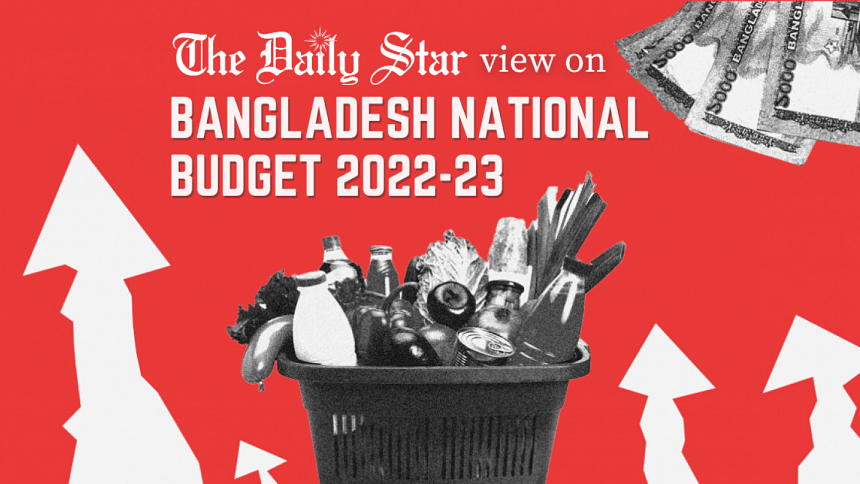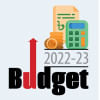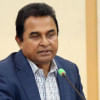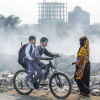An ordinary budget for an extraordinary time

Finance Minister Mustafa Kamal on Thursday unveiled the country's 51st annual budget which amounts to Tk 678,064 crore, up from last year's budget of Tk 603,681 crore (revised down to Tk 593,500 crore). As per his speech delivered in parliament, the proposed budget is expected to be 15.2 percent of the GDP. While preparing the previous two budgets, the government had to take the Covid-19 pandemic into consideration, which naturally forced them to be somewhat conservative. So, a lot was expected from this one, even though the Russia-Ukraine war means that the budgetary preparation was again affected by a global crisis. We are disappointed to say that this budget has not lived up to that expectation. In fact, from the information that has so far come out, it seems to be more or less a continuation of the previous one.
There is nothing that particularly stands out in the proposed budget. In his speech, the finance minister highlighted six major challenges for the upcoming fiscal year, including containing inflation and enhancing domestic investment; financing additional subsidies; utilising funds available through foreign assistance and ensuring timely completion of high-priority projects; ensuring timely completion of projects in the education and health sectors; increasing the collection of Valued Added Tax (VAT) and raising the number of individual taxpayers; and maintaining exchange rate stability of the taka and foreign exchange reserves. These challenges have been previously highlighted by experts and the media, too.
As if reflecting those challenges, the government has, for example, increased social safety net spending by a meagre 5.5 percent only, despite the poor struggling immensely because of job and income losses brought about by the pandemic as well as the ongoing inflationary pressure. Its cautionary approach to increasing expenditure on social safety net programmes is perhaps the result of trying to keep inflation down. Therefore, the message to low-income groups seems to be: keep practicing austerity. Middle-income people will also feel squeezed, as the government has targeted them to increase its tax net, going as far as announcing strict measures – including cutting off utility services – should anyone fail to pay their taxes on time. So, for the time being, the middle class too will have to continue on with their current difficulties.
Allocations for the health and education sectors have not seen much change, which is concerning. After the learning loss that occurred due to Covid-induced lockdowns, the fact that the proposed education budget has come down as a percentage of GDP compared to the current budget – from 2.08 percent to 1.83 percent – is particularly upsetting. Bangladesh has always had lower-than-expected allocations for education, and this budget too fails to acknowledge the importance of investing in human resources through higher allocations. Therefore, it will be more important than ever for the government to make quality and timely use of whatever little fund has been allocated to the sector – of which the government has a very bad track record anyway.
In fact, given the challenges we have been facing, what is most essential is for the government to use the budgetary allocations efficiently, cutting down on corruption and wastage. And that is where it has always failed. That failure, it must be said, has only further contributed to our current predicament, besides the ongoing global economic instability.
That is perhaps why the government has increased the prices of luxury items, which could bring down their imports, leading to less pressure on our foreign exchange reserves. Moreover, it has increased the excise duty on individuals who have a bank account balance of over Tk 5 crore. This, however, may not make too much difference to the government's revenue stream, which needs to be bumped up significantly. The budget should have clearly spelt out what measures the government is planning to take to increase its revenue besides token steps like allowing money launderers to whitewash their money for a small fee, like it has proposed again, despite similar moves previously never paying off. So we believe the government needs to urgently formulate some concrete steps to solve this problem over the next years.
The government has an enormous task on its hand. At a time when the country is facing some of the biggest economic challenges in recent memory, the government seems to have very little room for manoeuvre, which has once again forced it to prepare a somewhat cautionary budget. However, given the circumstances, there are numerous areas of the economy where Bangladesh desperately needs greater investment. Since the government has decided not to increase that investment by any substantial margin, it must now ensure that whatever resources it has allocated are put to best use. Thus, it can no longer continue on with a business-as-usual attitude – where crores of taka are wasted on big projects whose completion dates are extended ad nauseam, resulting in one cost escalation after another. Every bit of resource that it has at its disposal must now be used to return some form of stability to our overall economy, and to alleviate the massive sufferings of ordinary people.

 For all latest news, follow The Daily Star's Google News channel.
For all latest news, follow The Daily Star's Google News channel. 








Comments